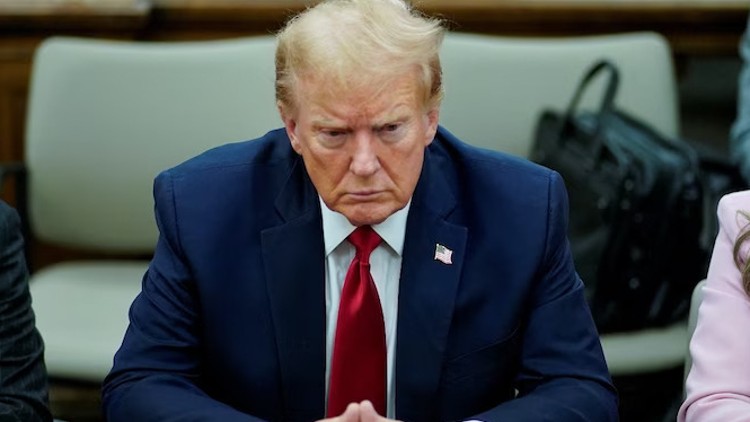In a recent development, a New York judge issued a compelling verdict in the civil business fraud trial involving former President Donald Trump. The judge, Arthur Engoron of the Manhattan Supreme Court, mandated that Trump pay a substantial sum of approximately $454 million in total penalties. This includes around $355 million in disgorgement, signifying the return of ill-gotten gains, and an additional $98 million in prejudgment interest, accumulating daily until fully paid.
Furthermore, Judge Engoron delivered a significant blow by prohibiting Trump from operating a business in New York for three years. The former president is also subjected to a three-year ban on seeking loans from financial institutions registered with the state.
In response to the ruling, Trump expressed discontent at his Mar-a-Lago resort, emphasizing the significant economic contributions he claims to have made to New York. Despite his objections, the judge affirmed that New York is steadfast in combatting business fraud.
Trump’s attorney, Chris Kise, announced their intention to appeal, asserting confidence that the Appellate Division would rectify what they perceive as numerous errors made during the trial. However, the appeals process is anticipated to extend over several years.
The trial, conducted without a jury, originated from New York Attorney General Letitia James’ lawsuit accusing Trump, his adult sons, his company, and top executives of fraudulent practices to inflate Trump’s assets. This alleged inflation aimed to enhance his net worth and secure various financial benefits.
Judge Engoron imposed fines totaling just under $464 million, encompassing disgorgement and interest. Eric Trump and Donald Trump Jr., now leading the Trump Organization, were individually ordered to pay more than $4 million each, along with facing a two-year ban on serving as officers or directors of any New York corporation.
Co-defendants Allen Weisselberg, the former CFO of the Trump Organization, and comptroller Jeffrey McConney, received permanent bans from controlling the finances of a New York business. Notably, the judge reversed his prior directive to cancel the defendants’ business certificates, rescinding what some experts deemed a “corporate death penalty” for the Trump Organization.
This ruling adds to a series of legal challenges faced by Trump, including a recent $83.3 million defamation verdict in a separate case. As Trump pursues a potential presidential bid, these legal battles may further shape the trajectory of his political ambitions. Trump’s legal team criticized the ruling, alleging political bias and warning of potential adverse impacts on New York’s business environment. Engoron, however, justified the decision based on the defendants’ submission of false financial data and their lack of contrition during the trial.



